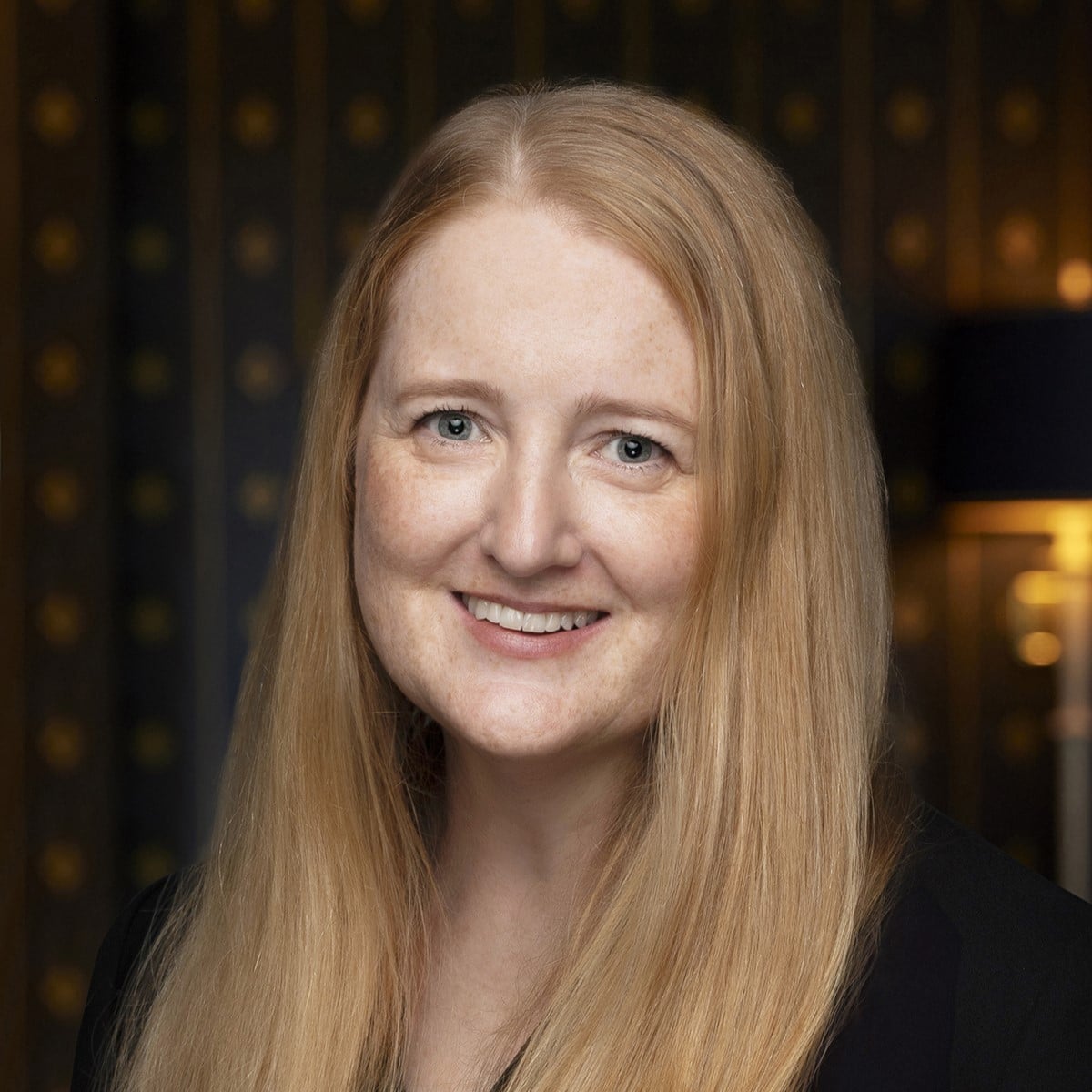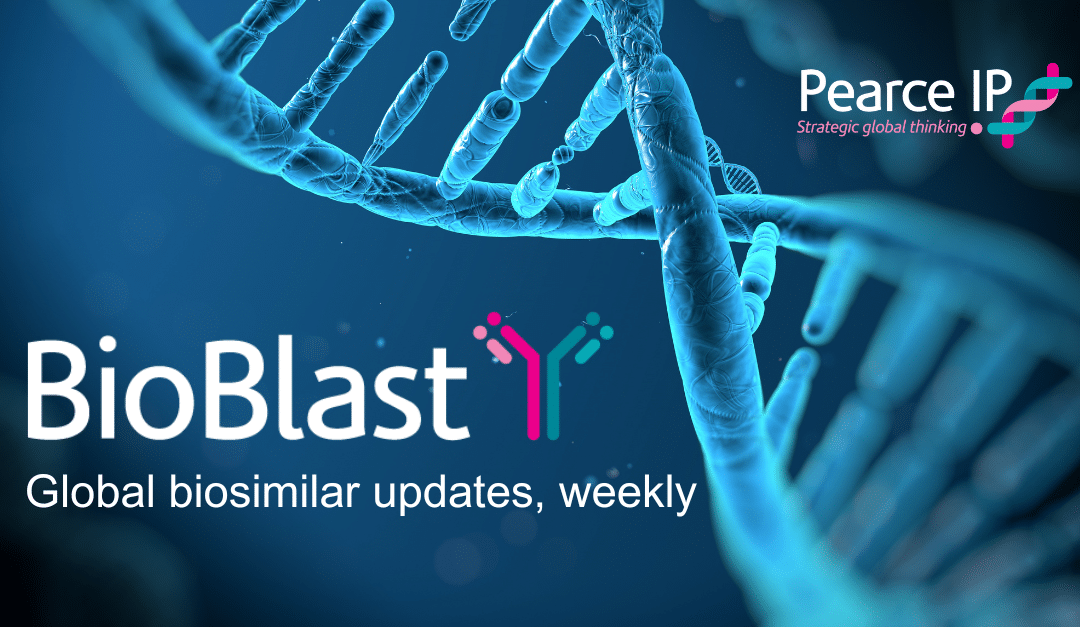On 11 April 2024, the United States Judicial Panel on Multijurisdictional Litigation ruled that patent infringement actions brought by Regeneron regarding aflibercept biosimilars by Amgen, Mylan, Celltrion, Samsung Bioepis (2 actions) and Formycon involved “common questions of fact” and should be centralized in the Northern District of West Virginia.
Regeneron commenced five of its actions in the Northern District of West Virginia but commenced proceedings against Amgen in the Central District of California. The Amgen case will now be transferred and assigned to Judge Kleeh who is hearing the remainder of the actions.
There are 63 patents in issue across each of the six actions. In each case, Regeneron alleges infringement of a common set of 13 US patents covering its ophthalmic drug, Eylea® (aflibercept).
Of the common set of 13 patents, one (a formulation patent, US 11,084,865, expiring in June 2027) was held by Judge Kleeh to be valid and infringed in a decision issued in the first-filed Mylan action in December 2023. Seven of the patents are at issue in preliminary injunction proceedings due to be heard on 2 May 2024 in the Northern District of West Virgina actions against Celltrion, Samsung Bioepis and Formycon.
On 12 April 2024, Korea Biomedical Review reported that Samsung Bioepis received Korean approval for EpyztekTM(SB17), biosimilar to Janssen’s Stelara® (ustekinumab), for the treatment of plaque psoriasis, psoriatic arthritis, Crohn’s disease and ulcerative colitis. EpyztekTM is the first ustekinumab biosimilar approved in Korea.
Samsung Bioepis presented Phase 3 results for SB17 at the American Academy of Dermatology Annual Meeting last month, demonstrating equivalence to Stelara® in efficacy and safety.
Under the brand name PyzchivaTM, SB17 was recommended for approval by the EU’s Committee for Medicinal Products for Human Use in February 2024. Samsung Bioepis also has a BLA for SB17 under review by the FDA, although Samsung cannot commercialise SB17 in the US until 22 February 2025 under a settlement and licence agreement with J&J. If approved in the US and EU, SB17 will be commercialised by Sandoz pursuant to a deal entered into with Samsung Bioepis in September 2023.
Samsung Bioepis has applied to revoke at least two of Janssen’s Stelara® (ustekinumab) Australian patents in the Australian Federal Court. The trial is provisionally scheduled for November 2024.
On 11 April 2024, Formycon AG and Bioeq AG announced the launch of Lucentis® (ranibizumab) biosimilar FYB201 in Canada and Switzerland. Health Canada granted marketing authorization under the tradename RanoptoTM, and Swissmedic has approved FYB201 under the tradename Ranivisio®.
FYB201 was developed by Bioeq AG subject to the joint venture between Formycon AG and Polpharma Biologics Group BV. In mid 2021, Bioeq entered an exclusive commercialisation agreement with Teva for FYB201 in Canada and Europe (among other regions).
On 11 April 2024, Business Korea published that Celltrion has been granted a formulation patent (US 11 951 207) for its ZYMFENTRA®. ZYMFENTRA® is the world’s first self-developed subcutaneous injection of infliximab for treating autoimmune diseases. Celltrion claims to have exclusive rights to its subcutaneous formulation until the patent’s “expiration in 2038”.
On 17 March 2024, Celltrion USA launched ZYMFENTRA™ (infliximab-dyyb), the first US Approved subcutaneous formulation of infliximab (approved by the U.S. FDA in 2023).
On 8 April 2024, Samsung Bioepis released its fifth US Biosimilar Market Report. The quarterly report details average sales price information for US launched biosimilars and market share and price trends.
The Q2 2024 Report notes that as of April 2024, the FDA has approved 48 biosimilars, with three of those (Alvotech’s/Teva’s Simlandi® (Humira®, adalimumab), Sandoz’s Jubbonti®/Wyost® (Prolia®/Xgeva®, denosumab) and Fresenius Kabi’s Tyenne® (Actemra®, tocilizumab) approved in the last quarter. 38 of the 48 approved biosimilars have launched in the US.
Samsung Bioepis reports that, on average, biosimilars in the US have gained 53% market share within 3 years post initial launch. As at Q4 2023, the adalimumab biosimilars share of the US adalimumab market was 4%, although this was up 2% compared with last quarter. The first biosimilar was launched in January 2023 (Amjevita™, Amgen) and multiple additional biosimilars entered the US market in July 2023.
On 8 April 2024, PR Newswire reported Mabwell’s MAIWEIJIANTM (denosumab 120mg) (biosimilar to Amgen’s Prolia®) received marketing approval in China. MAIWEIJIAN was developed by Mabwell’s wholly owned subsidiary T-mab. It is approved in China for the treatment of giant cell tumour of the bone that is unresectable or where surgical resection may lead to severe functional impairment.
Results of Mabwell’s Phase III trials were published in JAMA Oncology in February 2024 . In March 2023, Mabwell announced that it received Chinese marketing approval for Mailishu® (denosumab), biosimilar to Amgen’s Prolia®.
The Australian Therapeutic Goods Administration (TGA) has updated its register of prescription medicines under evaluation adding 11 new medicines which were accepted for review between February and March 2024. Amongst others, the register shows:
In February:
- MSD’s Keytruda® (pembrolizumab) was accepted for review for a new indication treating patients with locally advanced or metastatic urothelial carcinoma;
- Amgen’s blinatumomab was accepted for review for the treatment of B-cell precursor acute lymphoblastic leukemia in the consolidation phase; and
- Novo Nordisk’s Refixia® (nonacog beta pegol) was accepted for review for the treatment and prophylaxis of bleeding in patients with haemophilia B.
In March:
- BMS’ nivolumab and Pfizer’s marstacimab were accepted for evaluation; and
- MSD’s sotatercept (Australian brand name yet to be confirmed) was accepted for evaluation for the treatment of pulmonary arterial hypertension.
The TGA acceptance of MSD’s sotatercept comes after MSD’s WinrevairTM (sotatercept) was approved in the US by the FDA in March 2024.

Naomi Pearce
CEO, Executive Lawyer (AU, NZ), Patent Attorney (AU, NZ) & Trade Mark Attorney (AU)
Naomi is the founder of Pearce IP, and is one of Australia’s leading IP practitioners. Naomi is a market leading, strategic, commercially astute, patent lawyer, patent attorney and trade mark attorney, with over 25 years’ experience, and a background in molecular biology/biochemistry. Ranked in virtually every notable legal directory, highly regarded by peers and clients, with a background in molecular biology, Naomi is renown for her successful and elegant IP/legal strategies.
Among other awards, Naomi is ranked in Chambers, IAM Patent 1000, IAM Strategy 300, is a MIP “Patent Star”, and is recognised as a WIPR Leader for patents and trade marks. Naomi is the 2023 Lawyers Weekly “IP Partner of the Year”, the 2022 Lexology client choice award recipient for Life Sciences, the 2022 Asia Pacific Women in Business Law “Patent Lawyer of the Year” and the 2021 Lawyers Weekly Women in Law SME “Partner of the Year”. Naomi is the founder of Pearce IP, which commenced in 2017 and won 2021 “IP Team of the Year” at the Australian Law Awards.

Chantal Savage
Special Counsel, Lawyer
With a science degree specialising in molecular biology and biochemistry, Chantal’s practice focuses particularly on complex, high-value, multi-jurisdictional patent infringement and revocation proceedings for clients in the life sciences sectors.

